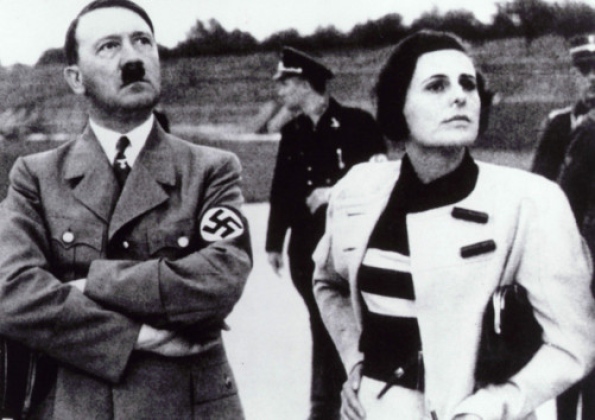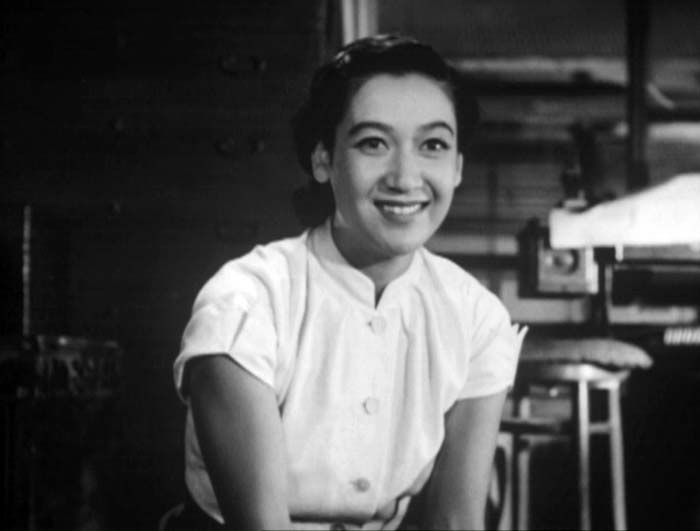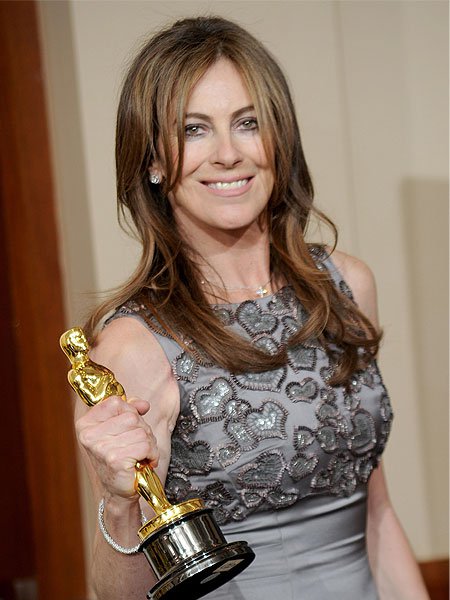It’s International Woman’s Day in the world and I’ve been playing around for a while with this sort of post idea so if I may – under the limited time I have – I’d like to take you on a very cursory journey through the history of film by way of women who have heralded landmarks in the industry. (Also, I swear I’ll have the Logan review tomorrow night, Get Out and The Lego Batman Movie within the week, don’t yell at me).
Let’s start on the right foot, with somebody who essentially started off taking control of her art like all the other artists.

Actress Mary Pickford essentially became in charge of her prolific silent film career early on (within three years in fact) and eventually to a point that she was de facto producer for $10,000 a week. And this landed her a seat when it came to the monumental creation of United Artists, a studio created for the sole purposes of maintaining the control and integrity of the future works of such peers to Pickford like Charles Chaplin, D.W. Griffith, and Douglas Fairbanks.

Speaking on D.W. Griffith, one such filmmaker that was heralded highly as a contemporary in the early days of American filmmaking was Lois Weber. While she was not the first female director or writer (that largely being credited to Alice Guy-Blache, who worked with Weber in American Gaumont Chronophones), the output of Weber’s work is overwhelming numerous (sadly, almost all of them lost – though one that is retained, Hypocrites, is a masterwork) and the highly moral attitudes of Weber’s work and her willingness to push the envelope on attitudes of female nudity, religion, and experimentation with split-screen, narrative length, and sound lends to a career that left so many fingerprints in cinema’s evolution.

Later on, as Metro Pictures was growing, one of the biggest figures within its walls was the great screenwriter June Mathis heading the story department and later one becoming one of their first executives as they became a powerhouse in the film industry. How influential was she, you say? To the point that she had the biggest hand on the production of The Four Horsemen of the Apocalypse, one of the most essential Hollywood films.

… aaaaaaand none of Leni Riefenstahl, BYE!*
*I mean, ok, she did change the game on documentary filmmaking and how the aesthetic can be used to powerful persuasion but she also was a… yeah…

Before even trying to came the actors’ contract system like she did, Olivia De Havilland was already an immortal face in Hollywood history in her association with such big bombastic and ambitious productions such as The Adventures of Robin Hood and Gone with the Wind. But then in 1943, when Warner Bros. tried to add six months to her almost-expired contract as was common, she challenged this practice and the studio in court and won, breaking herself out as a free agent and setting precedent for actors to charge for their own projects like Pickford before her. And rather than waste that freedom on remaining a romantic epic ingenue, De Havilland pursued challenging roles that demanded of her like The Snake Pit and The Heiress, suddenly turning her career to the ever more-interesting.

Do you have eight Oscars? Edith Head sure does and earned that record by her awareness of mood and culture as demanded by the productions such as in The Hurricane and yet making it so low-key that you don’t realize how she visually codes her characters until AFTER the dress has left the screen.

Including faces of the golden age of cinema would not be complete without possibly the most recognizable face in Japanese cinema that isn’t Mifune Toshiro. The eternal Hara Setsuko maintained her longevity as mainstay of the legendary Ozu Yasujiro‘s pictures on family and life. After he died, she mysteriously receded from the acting and the public eye (her death wasn’t reported until months after the fact), but she was never forgotten by the cinematic world.

If any editor could be considered an auteur in the field of cinema, history favors Dede Allen as that particular figure, being trusted with multiple filmmakers in the New Hollywood era to experiment with audio overlaps and jump cuts among other flourishes, essentially trying to make the film pop rather than dedicate her work to continuity. The result is among the most memorable elements of the likes of the finale of Bonnie and Clyde and the overall patient tension of Dog Day Afternoon.

Another female filmmakers whose documentaries are the lifesblood of personality and authorship would come by within a few 30 years, though with a start in narrative features. When the French New Wave began changing the game on cinema, standing on the Left Bank camp of the movement was Agnes Varda who brought in a feminist voice to the heavily male crowd of filmmakers with films such as Cleo from 5 to 7 and Vagabond, playing with structure and style but turning away from the self-gazing New Wave focus on cinema as subject to give a lens into the marginalized (she and her husband Jacques Demy make up my favorite New Wave filmmakers just behind Alain Resnais).

When blaxpoitation began really turning over the world in the 1970s, Pam Grier stood out over all the big masculine black heroes as a presence of attitude, power, and hard-boiled grit, never playing any less than an assertive ass-kicker in any form for her American International Pictures productions. That while still taking full autonomy and authority of her sex appeal and using it as a weapon like the likes of Theda Bara and Louise Brooks before her.

Now back while Steven Spielberg and George Lucas were “killing” New Hollywood Cinema in the late 70s, who do you think was behind them the whole time making sure they were properly organized? Producer Kathleen Kennedy, the co-founder of Spielberg’s production company Amblin Entertainment, associating with the filmmaker ever since its founding in 1981 and then by 2012 becoming attached to LucasFilm as its president, thus becoming the brand manager for Star Wars and essentially one of the most powerful people in Hollywood or at least moreso than you could already be when you’re the producer of E.T. and Jurassic Park.

I won’t say I wouldn’t be doing this sort of stuff if Pauline Kael weren’t around (especially when we don’t entirely see eye-to-eye), but she’s certainly one of my favorite critics for a reason and an outstanding influence to me. Her personal tone in her writing, the high opinionated emotion behind it, made me realize just how possible it is to contain my thoughts and feelings about cinema and to keep it a fair balance between the academic and the emotional.

You’d have a harder time trying to find a career more short-changed despite all she’s done for Hollywood than the great Elaine May who had proven to be such a natural at the complex art of comedy until suddenly audiences decided Ishtar was so bad it disqualified all her previous masterpieces like The Heartbreak Kid. Audiences are stupid. Fuck you, audiences.

Before Kathryn Bigelow became the first woman to snag a Best Director Academy Award (snatching it away from her ex-husband James Cameron no less, but with no hard feelings), her action-heavy genre work like Near Dark, Point Break, and Strange Days made damn clear that she had her own finger on how to make films rugged enough to make the gender of its filmmaker invisible, suddenly becoming a clear signal to the possibility of women to play rougher than boys. When suddenly her films became a window to present day issues like in The Hurt Locker, Zero Dark Thirty, and the upcoming Detroit Riots film, her maturity as a storyteller showed as well, suddenly taking on restraint towards a subject without succumbing to conformity.

UCLA graduate Julie Dash was one of many African-American voices at the very front of the L.A. Rebellion, based in Black American stories and cinema. After her short film Illusions made her a staple of independent filmmaking in America, her masterwork Daughters of the Dust became the first feature by an African-American woman to get a theatrical distribution, thereby kicking open the door for another marginalized group to be heard in the industry.

If Bigelow comes across as unstoppable in her success, Penny Marshall covers even more commercial ground than Bigelow could hope to aim for (though Bigelow clearly was not aiming that way with her filmography), becoming the first female director to break the $100 million profit barrier with Big and then doing it AGAIN with A League of Their Own in 1992 (which remains the highest-grossing baseball movie, adjusted for inflation. A SPORTS MOVIE FOCUSED ON WOMEN is the highest-grossing baseball movie. Yeah, boi.)

To date, there is only one female filmmaker to have won the prestigious Palme d’Or from the Cannes Film Festival and it had to be one of the best films ever gracing that festival – nay, the world – to break that mold. Jane Campion‘s The Piano and its ensuing success (also earning her a screenwriting Oscar and a nomination for Directing) made Campion an eminent face of Oz/Kiwi cinema and gave her a prominence in the arthouse world like Varda, Chantal Akerman, Liv Ullmann and Claire Denis before her while being just as incisive on society and gender politics as her predecessors.

You know why Quentin Tarantino’s movies are so fucking good? Because Sally Menke edited them with such a brilliant thumb on what makes pacing and style in her cutting. Wanna know why the last few Quentin Tarantino films have felt longer than they should have been, Menke sadly died way too abruptly and unfairly. Perhaps the most important collaborator in the career of one of America’s most recognizable filmmakers.

Last, but not least, Alison Bechdel is not really a big figure in film, as her main claim to fame is moreso making one of my favorite graphic novels Fun Home (which in turn was adapted to one of my favorite stage musicals). But she essentially brought about in recent years a rubric known as the “Bechdel Test” that tested gender representation in filmmaking and while it’s by no means an objective measure, it brought about a lot more self-consciousness about the usage of women in storytelling that a lot more attempts to throw them into different roles than those expected due to their sex and for that I’m always for.
And that’s about it. There’s a great deal of more prevalent women in film history that I had no chance of getting to without overwhelming myself, but I hope I illustrated well enough how they weave themselves into this industry and make damn sure their footprint is seen while being involved in some of the most important work you could catch on a screen. Happy International Woman’s Day! Don’t be awful!

























